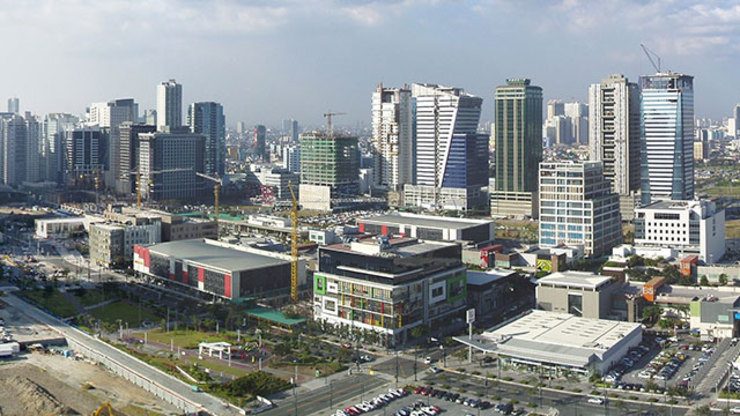SUMMARY
This is AI generated summarization, which may have errors. For context, always refer to the full article.

MANILA, Philippines – Metro Manila’s ranking in Asia Pacific’s prospective cities for investment slipped 4 notches from record showing 4th place in 2014, according to the Emerging Trends in Real Estate Asia Pacific 2015 survey results.
Its fall from 4th to 8th probably reflects investors’ wariness in the wake of impending interest rate rises in the US, results released Thursday, January 8, indicated.
The metropolis, comprised of the Philippine capital Manila and other key central business districts, is now behind 7 cities in the world.
Manila stood 4th in the 2014 survey results, only behind Tokyo, Seoul, and Jakarta.
The cities of Osaka, Sydney, Melbourne, and Shanghai pushed the Philippine capital down at the 8th spot in the latest ranking.
Although the Philippines is no longer the “sick man of Asia,” it is by no means an easy market for foreigners to target, the survey noted.
Foreign ownership rules a turn off
Regulations that restrict foreign ownership of land have dampened interest in development, as published by PricewaterhouseCoopers and Urban Land Institute.
The Philippines bars foreign investors from owning more than 40% of land and owning corporations in the country.
Also, the study noted that investors are concerned about the country’s transparency and arbitrary conduct.
In late 2014, the government caught the business community and international groups’ attention when it said it would rebid the big ticket Cavite-Laguna expressway project (CALAX).
The Palace’s decision favored a San Miguel subsidiary, which was disqualified from participating in the procurement process. San Miguel is the country’s largest and most diversified conglomerate, whose chief, Eduardo Cojuangco Jr, is the President’s maternal uncle.
New York-based think tank Global Source Partners said the rebidding could prove the country’s public-private partnership (PPP) project schemes “disastrous.”
The chronic shortcomings in local infrastructure are also are a long-standing concern, the survey said.
Likewise, the failure to get a Real Estate Investment Trust (REIT) industry off the ground has limited the attraction of the market for institutional investors.
REIT is a security, like a stock that sells on the major exchanges and invests directly in real estate through properties or mortgages. This is supposed to allow investors to profit from properties in the country without violating the constitutional ban against foreign ownership of land.
Despite such, the survey noted though that going forward, the economic prospects appear to be strong, but that the government should improve the business environment for foreigners.
The survey added that if the next administration makes the business climate friendly for foreign investors, “there could be more opportunity for international money in the future.”
Tokyo on top
The Emerging Trends in Real Estate Asia Pacific survey is an annual ranking of real estate investment and development trends and is based on the opinions of 385 internationally-renowned real estate professionals, investors, developers, property company representatives, lenders, brokers and consultants.
Tokyo remains at the top and is forecast to stay in the lead as “there seems to be plenty of room for markets to run.”
The city investment prospects rankings are as follows:
- Tokyo
- Jakarta
- Osaka
- Sydney
- Melbourne
- Shanghai
- Seoul
- Manila
- Singapore
- Beijing
- Mumbai
- Kuala Lumpur
- Ho Chi Minh City
- New Delhi
- Auckland
- Bangkok
- Bangalore
- Taipei
- Shenzen
- Guangzhou
- Hong Kong
- China – secondary cities
Low levels of perceived risk, including “levered” returns, are what make the Japanese capital best among the surveyed investment cities, the survey said.
“At the same time, the fact that commercial rents have been stagnant for several years means that investors are now looking for a rebound on the occupational side as a source of future profits,” the survey also said. – Rappler.com
Add a comment
How does this make you feel?
There are no comments yet. Add your comment to start the conversation.